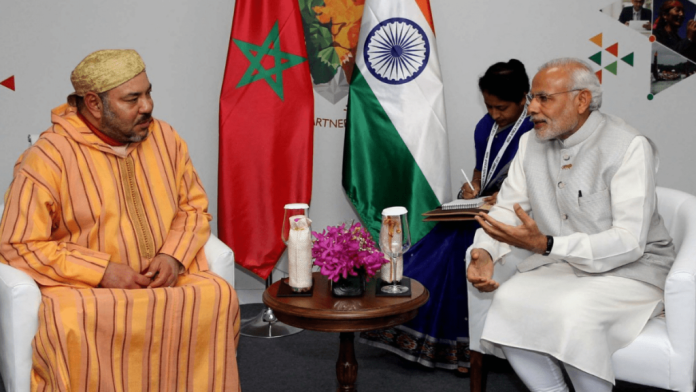Morocco is rapidly emerging as a pivotal player in the global green hydrogen landscape, leveraging its abundant renewable energy resources to forge strategic partnerships. Its proactive energy diplomacy, particularly with industrial powerhouses like Germany and emerging economies such as India, positions the North African nation as a crucial hub for the clean energy transition. This forward-thinking approach underscores Morocco’s commitment to sustainable development and its ambition to become a global leader in green hydrogen production.
Morocco’s Bold Green Hydrogen Vision
Morocco’s vision for green hydrogen is underpinned by its ambitious “Green Hydrogen Offer,” implemented via Circular n° 03/2024 in March 2024. This comprehensive national strategy aims to integrate the entire value chain of green hydrogen production, from renewable energy generation to storage and logistics. The nation boasts exceptional solar and wind resources, providing a significant competitive advantage for cost-effective production. Morocco’s commitment to renewables is clear, with a target to reach 52% of its electricity from renewable sources by 2030. To fuel this ambition, Morocco has allocated 1 million hectares of public land for green hydrogen projects, with 300,000 hectares already set aside for initial phases. The goal is to meet domestic energy needs and export a surplus, positioning Morocco as a reliable supplier to international markets.
Strategic Alliances: Germany and India as Key Partners
The cornerstone of Morocco’s green hydrogen strategy lies in its strategic international partnerships. Germany, a key partner, views Morocco as an ideal source for future hydrogen imports to meet its own substantial decarbonization goals. Germany’s updated hydrogen import strategy (July 2024) indicates that 50 to 70 percent of its projected hydrogen demand by 2030 will need to be covered by imports. Collaboration extends beyond simple trade, encompassing technology transfer, investment in production facilities, and the development of necessary infrastructure. Projects such as the BMZ’s €30 million investment in a green hydrogen and ammonia plant in Jorf Lasfar exemplify this robust partnership.
Furthermore, Morocco is actively seeking to diversify its green hydrogen export markets. India, with its ambitious National Green Hydrogen Mission targeting 5 million metric tonnes (MMT) of production by 2030, presents a compelling opportunity for South-South cooperation. Both nations share a drive to reduce reliance on fossil fuels and accelerate their energy transitions, making such collaborations mutually beneficial. Although particular green hydrogen initiatives between Morocco and India are still in their early stages, their overall energy diplomacy highlights a mutual commitment to a sustainable future. Initiatives like the Xlinks project, though primarily focused on connecting Morocco’s solar and wind power to the UK, also demonstrate the nation’s capacity for large-scale renewable energy export infrastructure, which is vital for green hydrogen.
Worldwide Influence and Future Pathway
This proactive green hydrogen diplomacy is set to have a transformative impact on Morocco. Economically, it promises to attract significant foreign investment, with approved projects already valued at $32.5 billion, and create high-value jobs. It also reinforces Morocco’s geopolitical relevance as a trans-Mediterranean energy partner. While challenges remain in scaling up production, addressing the nascent regulatory framework, and managing water resources for electrolysis, Morocco’s strategic location, abundant renewable energy, and commitment to international partnerships position it strongly to overcome these hurdles.
The country’s commitment to green hydrogen goes beyond ensuring energy security; it plays a vital role in leading Africa toward a sustainable future and making a substantial impact on global efforts to reduce carbon emissions.




